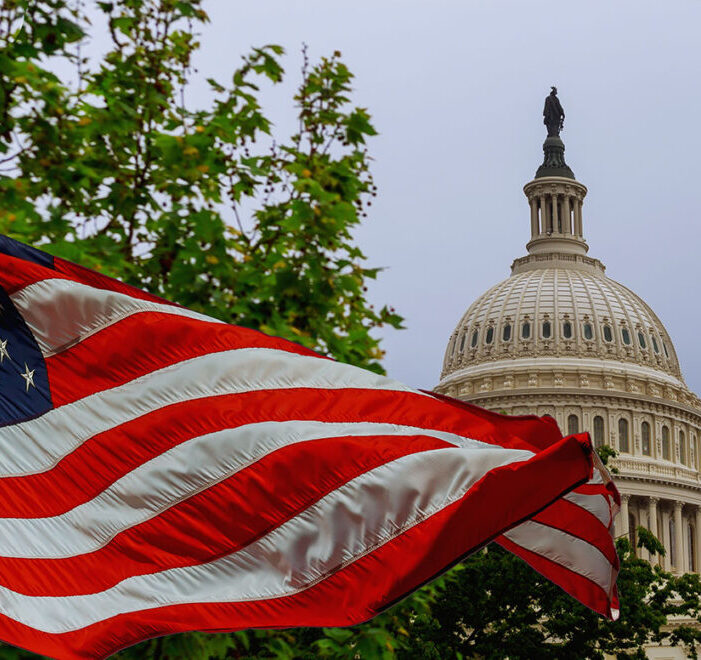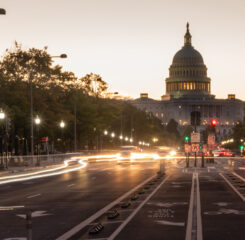Background
Gorgi Talevski was a resident at the Valparaiso Care and Rehabilitation center in Indiana, a nursing home owned by public entity Health and Hospital Corporation of Marion County (HHC). Mr. Talevksi suffered from dementia and experienced physical and mental decline during his stay at the facility. His family sued Valparaiso Care, HHC and a third-party management company (for simplicity this article will refer to the defendants as HHC) in federal court, alleging in part that HHC violated his statutory right under FNHRA to be free from chemical restraints when it administered certain medications to him, and that it deprived him of rights relating to resident transfer and discharge procedures. HHC has denied any wrongdoing in the case.
The lawsuit was based on a provision in the U.S. Code referred to as Section 1983, which provides that if a government entity subjects a person “to the deprivation of any rights … secured by the Constitution and laws,” the person whose rights were violated may bring suit against the government entity. Talevksi argued that FNHRA provides such rights, and a resident of a governmentally owned nursing home may therefore bring a suit under Section 1983.
These suits can be very impactful, because a plaintiff who prevails in a federal Section 1983 case may be awarded substantial monetary damages, including amounts to cover the person’s attorneys’ fees. A Court may also order the government entity that is the defendant in the case to take specific actions. Section 1983 claims are a different avenue of relief than claims brought in state court alleging negligence or other improper actions by defendants.
A federal district court in Indiana was the first to hear this case, and it dismissed the claim, finding that FNHRA does not provide a private right that may be redressed under Section 1983. The U.S. Court of Appeals for the Seventh Circuit reversed that decision, however, finding that FNHRA does provide such a right, and HHC appealed to the Supreme Court.
Issues
HHC is advancing two arguments before the high Court. The first and broader argument is that certain federal statutes such as the Social Security Act – in which Congress authorizes federal funding to be paid to States, provided that States follow certain requirements and use the money in certain ways (for example, the Medicaid program) – do not establish rights that individuals may privately enforce against government actors through actions under Section 1983. Essentially, HHC argues that Congress did not intend for such spending-power statutes to fall under the scope of Section 1983, when it originally enacted that statute.
This argument calls for the Court to overrule existing precedent, and a decision by the Court to do so would have a broad impact, going well beyond the FNHRA. It is difficult to predict how the Court will rule based on oral arguments, but from the lines of questioning that occurred during the Nov. 8 hearing, it seemed that only a minority of the nine Justices might be inclined to accept this argument.
The second and narrower argument is that, even if federal spending-power statutes such as the Social Security Act can give rise to private rights enforceable under Section 1983 in some cases, Congress did not intend the specific FNHRA residents’ rights provisions at issue in the Talveski case to be enforceable in that way.
On this question, HHC’s primary argument to the Justices was that Congress precluded or preempted a Section 1983 claim by creating a comprehensive enforcement system within FNHRA itself: requiring federal and state surveyors to conduct investigations, empowering the federal government to impose a range of escalating penalties on non-compliant facilities, including fines, denial of payment and termination, as well making certain administrative remedies available to residents.
Appearing on behalf of the Biden Administration and not in support of either party to the case, the Assistant U.S. Solicitor General, Benjamin Snyder, advanced this same argument during the hearing – one which the Administration had also articulated in an earlier brief to the Court.
Chief Justice Roberts, Justice Kavanaugh and Justice Kagan each raised questions about this argument, seeking to understand the line of reasoning and what supports the position, as a matter of statutory interpretation, that Congress intended for FNHRA’s system of enforcement and remedies to be exclusive of private remedies.
In response Snyder emphasized that, in the case of FNHRA, Congress was acting in an area where the vast majority of facilities covered by the law are operated by private parties, not government actors, and that Congress contemplated providing a private cause of action against those private parties but left it out of the bill it ultimately enacted.
This echoed the Administration’s written brief to the Court, which noted: “The fact that Congress treated … [the] administrative mechanisms [in FNHRA] as comprehensive with respect to the vast majority of nursing home residents indicates that Congress did not intend an additional, and potentially conflicting, Section 1983 remedy to be available to the small percentage of nursing home residents who happen to live in municipally operated facilities.”
Looking Ahead
A Supreme Court decision upholding the appeals court decision would have significant implications for government entities that operate nursing homes, providing a new cause of action for individuals wishing to seek remedies from those providers.
Such a ruling could be a deterrent or disincentive to continued ownership of these facilities for counties, cities and other municipalities. An amicus brief jointly submitted to the Supreme Court by the National Conference of State Legislatures, the National Association of Counties, and the National League of Cities, among other organizations, notes their concern that many local governments may decide against nursing home ownership and operations due to increased risk of liability, if the appeals court’s holding stands.
With the oral argument now complete, the Justices will proceed to their internal deliberations. The Court will issue a decision before the end of its current term in June 2023, but the specific timing is unknown. We will track this case closely and provide analysis of the Court’s opinion once it is released.
A transcript and recording of the Nov. 8 oral argument is available on the Supreme Court’s website.

 Shutdown Week Three: Impact of Ongoing Closure on Affordable Housing
Shutdown Week Three: Impact of Ongoing Closure on Affordable Housing Colleagues on the Move, February 18, 2026
Colleagues on the Move, February 18, 2026


